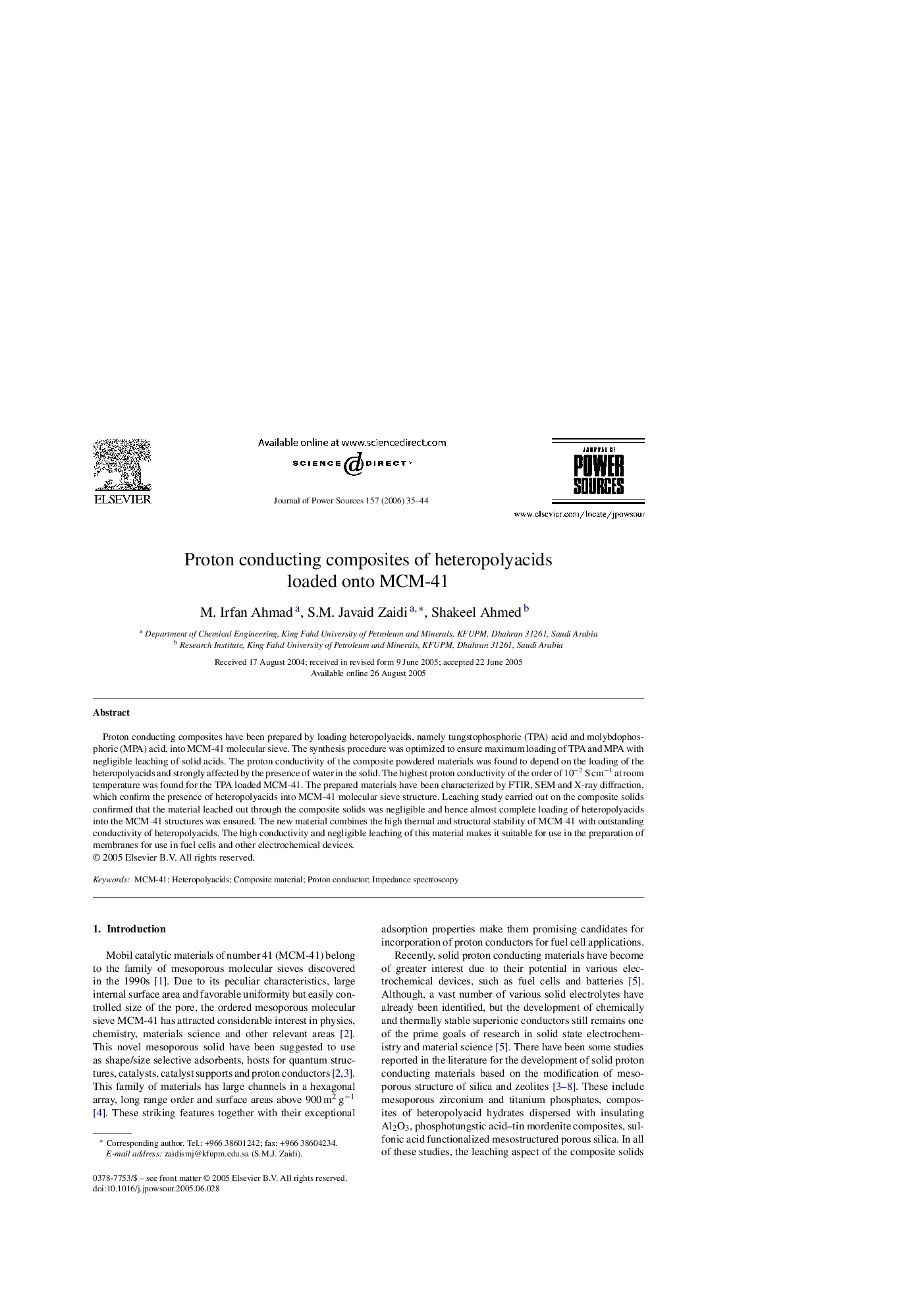| Article ID | Journal | Published Year | Pages | File Type |
|---|---|---|---|---|
| 1292644 | Journal of Power Sources | 2006 | 10 Pages |
Abstract
Proton conducting composites have been prepared by loading heteropolyacids, namely tungstophosphoric (TPA) acid and molybdophosphoric (MPA) acid, into MCM-41 molecular sieve. The synthesis procedure was optimized to ensure maximum loading of TPA and MPA with negligible leaching of solid acids. The proton conductivity of the composite powdered materials was found to depend on the loading of the heteropolyacids and strongly affected by the presence of water in the solid. The highest proton conductivity of the order of 10â2Â SÂ cmâ1 at room temperature was found for the TPA loaded MCM-41. The prepared materials have been characterized by FTIR, SEM and X-ray diffraction, which confirm the presence of heteropolyacids into MCM-41 molecular sieve structure. Leaching study carried out on the composite solids confirmed that the material leached out through the composite solids was negligible and hence almost complete loading of heteropolyacids into the MCM-41 structures was ensured. The new material combines the high thermal and structural stability of MCM-41 with outstanding conductivity of heteropolyacids. The high conductivity and negligible leaching of this material makes it suitable for use in the preparation of membranes for use in fuel cells and other electrochemical devices.
Related Topics
Physical Sciences and Engineering
Chemistry
Electrochemistry
Authors
M. Irfan Ahmad, S.M. Javaid Zaidi, Shakeel Ahmed,
